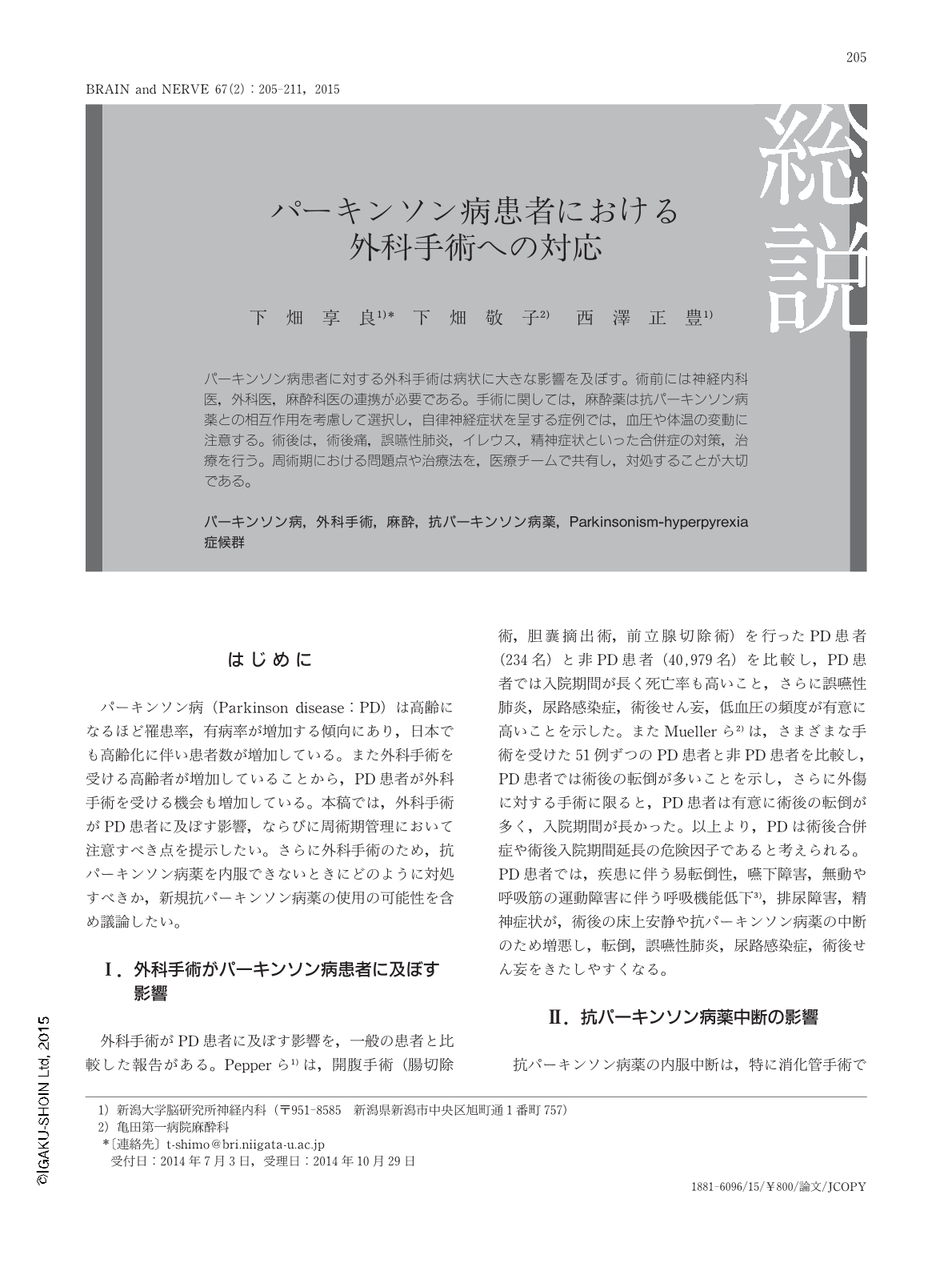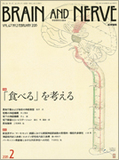Japanese
English
- 有料閲覧
- Abstract 文献概要
- 1ページ目 Look Inside
- 参考文献 Reference
パーキンソン病患者に対する外科手術は病状に大きな影響を及ぼす。術前には神経内科医,外科医,麻酔科医の連携が必要である。手術に関しては,麻酔薬は抗パーキンソン病薬との相互作用を考慮して選択し,自律神経症状を呈する症例では,血圧や体温の変動に注意する。術後は,術後痛,誤嚥性肺炎,イレウス,精神症状といった合併症の対策,治療を行う。周術期における問題点や治療法を,医療チームで共有し,対処することが大切である。
Abstract
Several studies have demonstrated the serious impact of surgeries on patients with Parkinson's disease (PD). In addition, PD is a risk factor for postoperative complications and prolonged hospital stays. Discontinuation of anti-Parkinsonian drugs due to surgery causes an exacerbation of Parkinsonism and sometimes Parkinsonism-hyperpyrexia syndrome (PHS). Therefore, surgeries involving patients with PD require careful perioperative management. During the preoperative period, cooperation among neurologists, surgeons, and anesthesiologists is imperative. Administration of the same oral anti-Parkinsonian drug regimen that was prescribed during home care is important. Methods of both general and regional anesthesia should be chosen based on general health status and symptoms of Parkinsonism and agents should be selected with due consideration of their possible interaction with anti-Parkinsonian drugs. In patients with PD showing autonomic disturbance, changes in blood pressure and body temperature should be monitored. During the postoperative phase, postoperative pain, aspiration pneumonia, ileus, and psychotic symptoms should be managed, taking into consideration the interactions between anti-Parkinsonian drugs and therapeutic agents. Currently, new anti-Parkinsonian drugs, such as rotigotine and apomorphine are available for patients with PD requiring parenteral treatment. It is important that medical experts share awareness about perioperative problems and their management in patients with PD.
(Received July 3, 2014; Accepted October 29, 2014: Published February 1, 2015)

Copyright © 2015, Igaku-Shoin Ltd. All rights reserved.


